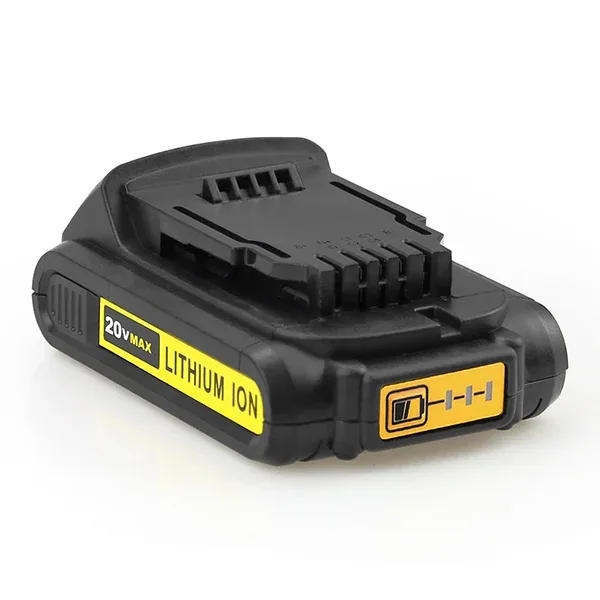
- Products
- Solutions
- Customization
- About
- Resources
- Contact
- Request A Quote
Rechargeable energy storage units made expressly for portable power tools are known as power tool batteries. They offer a handy and transportable source of power, enabling the use of power tools without the need for an electrical outlet.
These batteries are nickel-cadmium (NiCd) or lithium-ion (Li-ion) based. In contrast, lithium-ion batteries are more frequently employed in contemporary power tools because of their better energy density, longer runtimes, less weight, and diminished memory effect.
Nickel-Cadmium batteries are durable and can handle high-drain applications. Compared to NiCd batteries, NiMH batteries have a higher energy density and don't experience the memory effect. Lithium-ion batteries offer the highest energy density, longer runtime, and no memory effect.

Power tools typically come in different voltage ratings, such as 12V, 18V, and 20V. Higher voltage generally means more power and better performance. However, higher voltage batteries may also be heavier and bulkier.
Consider the type of tasks you'll be performing. Lower voltage batteries may be sufficient for lighter tasks, while heavy-duty tasks may require higher voltage batteries.
The Ah rating indicates the battery capacity, which also establishes how long it will operate between recharges. Higher Ah ratings generally provide longer runtime.
Consider the type and duration of your projects. If you frequently work on long tasks, opt for batteries with higher Ah ratings.
Ensure that your chosen battery is compatible with your specific power tool model. Different manufacturers may have proprietary battery designs, so check for compatibility before purchasing.
Some manufacturers offer backward compatibility, allowing newer battery models to work with older tools. This can be beneficial if you own power tools from the same brand.
Choose reputable brands known for their quality and reliability. Established brands often have better customer support, warranty options, and a wider range of compatible tools and accessories.
Research customer reviews and ratings to gauge the performance and durability of the batteries.
Battery prices vary significantly depending on the brand, type, and capacity. Consider your budget and the value you expect from the battery in terms of performance, durability, and runtime.
Cheaper batteries may save money initially but may have shorter lifespans or lower performance, resulting in more frequent replacements.
Look for batteries that offer efficient charging options. Some batteries come with fast chargers, allowing you to recharge them quickly, while others may take longer.
Consider whether the battery is compatible with universal chargers or if you'll need to purchase a dedicated charger separately.
Check for safety features like overload protection, temperature monitoring, and short circuit protection. These features help prevent damage to the battery and ensure safe operation.
Review the warranty provided by the manufacturer. Longer warranty periods indicate the manufacturer's confidence in their product. Good customer support is also essential if you encounter any issues or have questions.
To ensure the battery improves your overall tool performance and productivity, remember to prioritize your requirements, such as runtime, power, and compatibility. You can contact our team member and order Power Tool Batteries you need anytime.